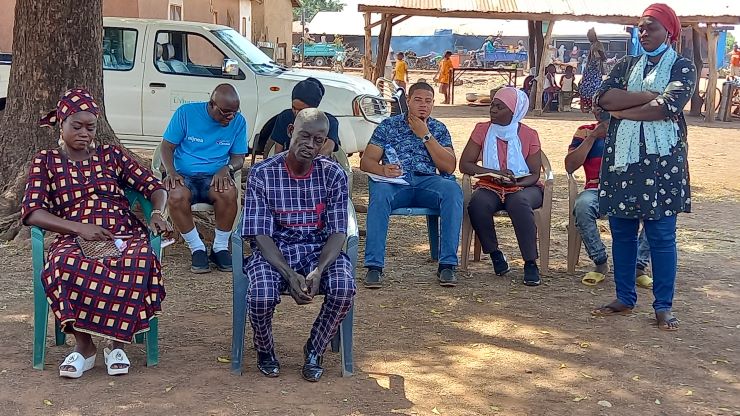Gender inequality has generally rendered many women disadvantaged, in developing and harnessing their human capital. Whilst various reasons have been cited for the existence of gender inequality in Northern Ghana, the most widely cited reason is culture, specifically the patriarchal system, low participation in decision-making, and unpaid care work.
Gender equality and social inclusion are seen not only as fundamental aspects of human rights and social justice but also as a precondition to improving the development process by placing social concerns at the forefront of interventions. Recognizing the numerous normative issues that contribute to gender inequalities in Northern Ghana and their effects on improving the socioeconomic status of women, URBANET, in partnership with MEDA under the GROW2 project, seeks to tackle these inequalities by implementing Gender Equality Champions (GEC) by engaging men who are passionate and can serve as Community Partners to ignite change.

Under the leadership of the GESI coordinator, 35 men from the North East and East Gonja districts were taken through two days of intensive training. These men will serve as Gender Equality Champions (GECs) within their various communities. This initiative aims to improve their knowledge and skills as well as equip them with the tools necessary for effective and efficient advocacy. This will ensure community support for women’s socioeconomic empowerment topics such as gender awareness on sex and gender, negative masculinities and their effects, and equity and equality.





